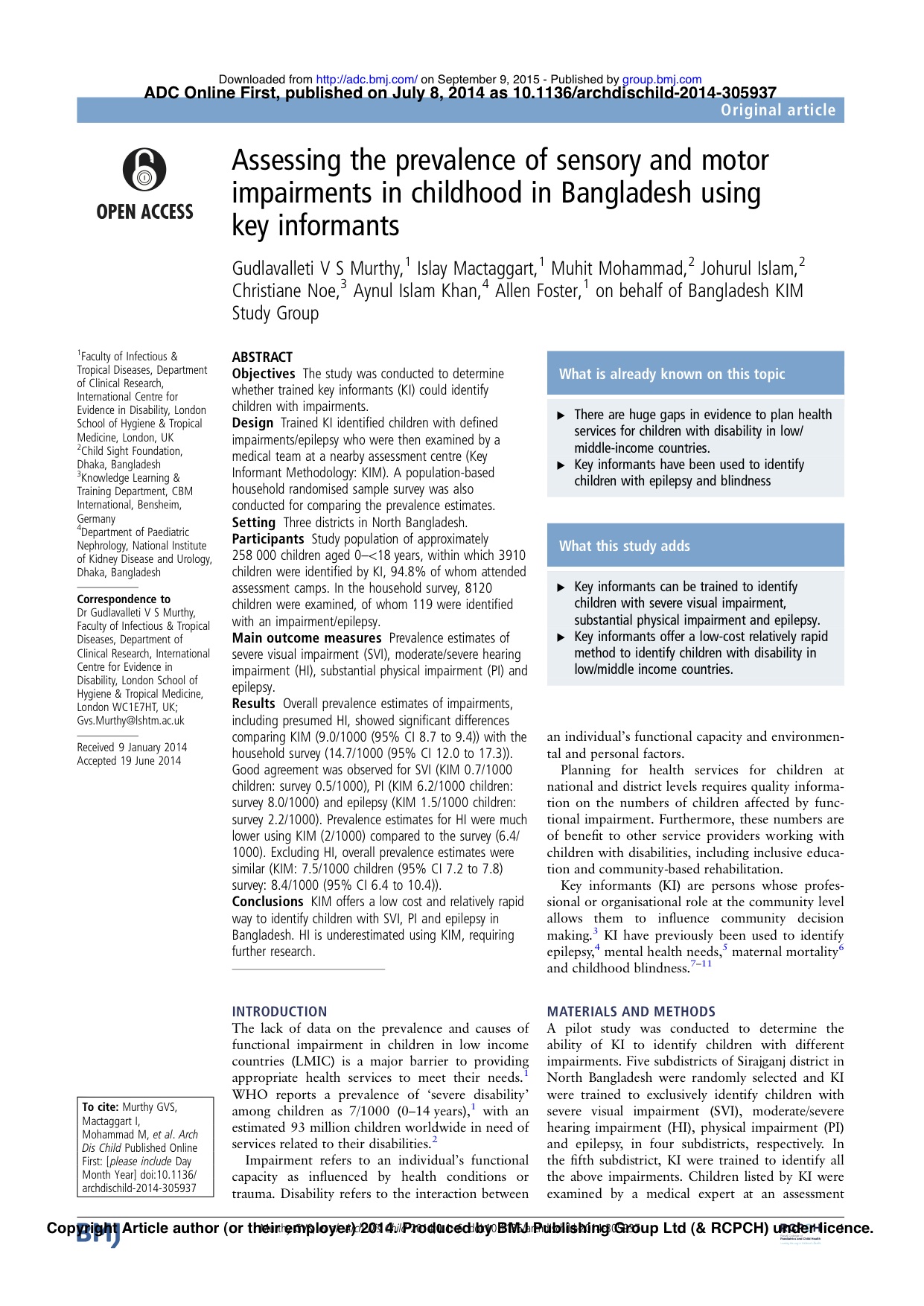Assessing the prevalence of sensory and motor impairments in childhood in Bangladesh using key informants
Gudlavalleti V S Murthy, Islay Mactaggart, Muhit Mohammad, Johurul Islam, Christiane Noe, Aynul Islam Khan, Allen Foster, on behalf of Bangladesh KIM Study Group
 ABSTRACT
ABSTRACT
Objectives: The study was conducted to determine whether trained key informants (KI) could identify children with impairments.
Design: Trained KI identified children with defined impairments/epilepsy who were then examined by a medical team at a nearby assessment centre (Key Informant Methodology: KIM). A population-based household randomised sample survey was also conducted for comparing the prevalence estimates.
Setting: Three districts in North Bangladesh.
Participants: Study population of approximately 258 000 children aged 0–<18 years, within which 3910 children were identified by KI, 94.8% of whom attended assessment camps. In the household survey, 8120 children were examined, of whom 119 were identified with an impairment/epilepsy. Main outcome measures Prevalence estimates of severe visual impairment (SVI), moderate/severe hearing impairment (HI), substantial physical impairment (PI) and epilepsy.
Results: Overall prevalence estimates of impairments, including presumed HI, showed significant differences comparing KIM (9.0/1000 (95% CI 8.7 to 9.4)) with the household survey (14.7/1000 (95% CI 12.0 to 17.3)). Good agreement was observed for SVI (KIM 0.7/1000 children: survey 0.5/1000), PI (KIM 6.2/1000 children: survey 8.0/1000) and epilepsy (KIM 1.5/1000 children: survey 2.2/1000). Prevalence estimates for HI were much lower using KIM (2/1000) compared to the survey (6.4/ 1000). Excluding HI, overall prevalence estimates were similar (KIM: 7.5/1000 children (95% CI 7.2 to 7.8) survey: 8.4/1000 (95% CI 6.4 to 10.4)). Conclusions KIM offers a low cost and relatively rapid way to identify children with SVI, PI and epilepsy in Bangladesh. HI is underestimated using KIM, requiring further research.
Partners
International Centre for Evidence in Disability, London School of Hygiene & Tropical Medicine
CBM International, Bensheim, Germany
National Institute of Kidney Disease and Urology, Dhaka, Bangladesh
Download
Assessing the prevalence of sensory and motor impairments in childhood in Bangladesh using key informants (PDF 483KB)
